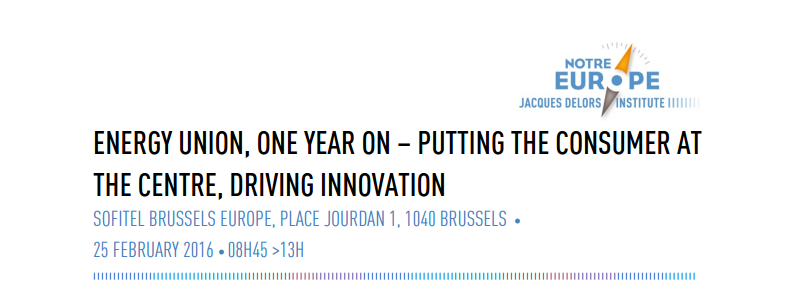Brexit & Tax



25 April 2017
11.45am-14.30pm
Send your registration application here by 14 April 2017
We used to hear “our future is digital”. But digital is already there, in nearly all spheres of our lives. . . and the financial industry is no exception. Everyone has already come across the concepts of “Fintech” and “virtual currencies”, such as bitcoin, one of the most popular application of the blockchain and distributed ledger technology (BDLT). In its purest form, it promotes a redistribution of power from central actors across wide communities of peers. However, who can pretend that he or she can really and clearly understand what it underpins?
Many think that blockchain is a great technology. Some even say that BDLT could change our lives. Others are calling for prudence, as it is not a neutral technology, with implications for the private but also for the public sector, impacted in three dimensions: as a service provider, as a supervisor and as a legislator. A recent in-depth analysis from the European Parliament, also says that the blockchain protocol provides platforms for both “good actions and bad actions”.
BDLTs present several potential benefits for citizens, such as a more accessible and innovative financial system, reduced costs, as well as improved security. But they also entail many legal and regulatory challenges, ranging from consumer protection mechanisms, to enforcement methods and possibilities for engaging in illegal activities such as tax evasion and the sale of unlawful goods. Two recent European Parliament reports, on virtual currencies and on Fintech, highlighted that these increased risks will require adequate technical expertise , and possibly enhanced regulatory capacity , while calling for a proportionate EU regulatory approach in order not to hamper innovation at such an early stage.
ACCA (the Association of Chartered Certified Accountants) and EY are therefore delighted to invite you for a panel discussion to shed some useful light on the risks and opportunities of BDL, and to stimulate reflection and discussion on these complicated, controversial and fast-moving technologies, seeking to try and understand their potential and limitations.
Draft agenda
11.45am Registration and sandwich lunch
12.30pm Welcome Speech, Andrew Hobbs, EMEA leader for Regulatory Policy, EY
12.40pm Key note speech MEP van Nieuwenhuizen, EP rapporteur on FinTech
12.50pm Panel discussion moderated by Narayanan Vaidyanathan, ACCA
· Tobias Mackie, Policy coordination financial services, DG FISMA, European Commission
· Elizabeth Krahulecz, Director - Head of EMEIA Regulatory & Public Policy Brussels Office, presentation of Blockchain, DLT and the Capital Markets Journey: Navigating the Legal and Regulatory Landscape
· Mathias Bucher, Founder and CEO of Blockchain –Innovation and a teacher at Zurich University
· Siân Jones, Founder of EDCAB- European Digital Currency & Blockchain Technology Forum
13.55pm Q&As
14.15pm Keynote speech Adam Farkas, Executive Director of the European Banking Authority
14.25pm Concluding remarks, Narayanan Vaidyanathan, ACCA
14.30pm End
The Great Recession and the European debt crisis have reignited the debate about deeper fiscal integration in the Eurozone. Supporters of further integration argue that fiscal risk sharing is necessary to increase the resilience of the European economy against macroeconomic shocks.
Join us to discuss financial literacy as a key transversal, supporting long-term outcomes like entrepreneurship and employability!
Europe's commitment to a single capital market dates back nearly 60 years.

“Education and training 2020 - giving today's young people the workplace skills they will need”

Building namely on a policy proposal made by the Jacques Delors Institute, the European Commission tabled its ‘Energy Union Strategy’ on February 25th 2015.

The American Chamber of Commerce to the European Union (AmCham EU)
is pleased to invite you to the launch of a new study
“SMEs’ access to Finance: A new “Financing Mix” to be set up within the EU
The Case for Investing in Europe
on Wednesday 24 June 2015 from 14:00 to 18:30